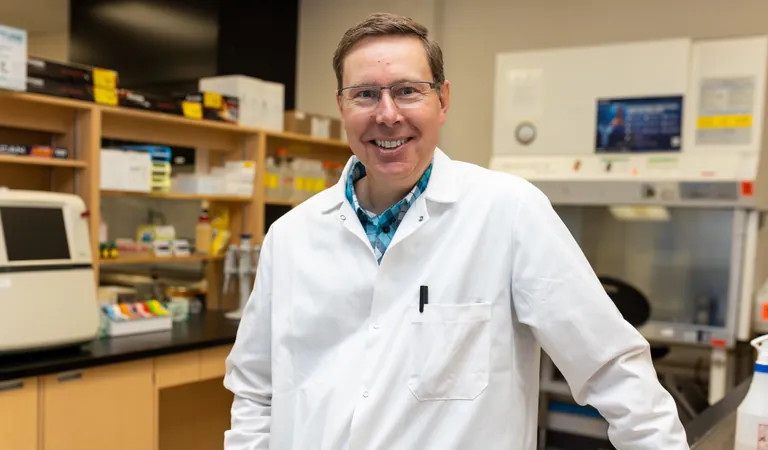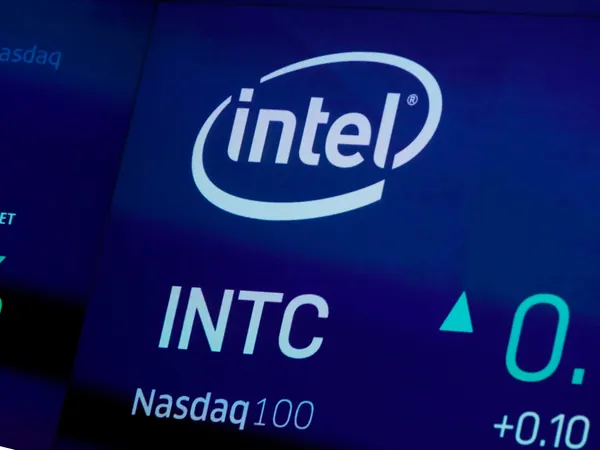
Could Aspirin Be the Key to Preventing Colorectal Cancer Relapses?
2025-09-23
Author: Noah
Daily Aspirin Use Could Cut Cancer Recurrence Risk by Over Half!
Imagine a common medicine you have at home potentially saving lives. New groundbreaking research suggests that taking a low dose of aspirin every day could significantly decrease the risk of colon and rectal cancer recurring in certain patients.
The Revolutionary Study Results
Conducted by experts at the Karolinska Institute and Karolinska University Hospital in Sweden, this clinical trial involved 626 patients battling stages 1 to 3 colon or rectal cancers. All participants had specific genetic mutations linked to their cancer.
Previous studies hinted that tumors with alterations in the PIK3 signaling pathway might be vulnerable to aspirin, but this study marks the first real test of this theory in a randomized clinical trial.
Astonishing Findings!
Those who took daily aspirin saw their chances of cancer recurrence plummet by as much as 55% over a three-year period compared to those on a placebo. In the aspirin group, only 7.7% faced a relapse, while the placebo group had recurrence rates ranging from 14.1% to 16.8% depending on their specific mutation.
According to surgeon Anna Martling from the Karolinska Institute, "Aspirin is a drug that is readily available globally and extremely inexpensive compared to many modern cancer drugs, which is very positive." This affordability could transform cancer care for many.
How Aspirin Fights Back Against Cancer
Experts speculate that aspirin may combat cancer in three distinct ways: it reduces inflammation, curtails tumor growth, and inhibits platelet functionality—these blood cells often act as shields for cancer, helping tumors to spread. Additionally, aspirin might disrupt the PIK3 signaling pathway, believed to promote tumor growth.
The Quest for Further Understanding
More research is necessary to uncover the exact molecular mechanisms behind aspirin's effectiveness in preventing colorectal cancer recurrence. Martling emphasizes the potential of personalizing treatment using genetic information, stating, "This is a clear example of how we can tailor treatment to specific genetic profiles, allowing us to save resources and reduce patient suffering."
A Hopeful Outlook
With around 30 to 40 percent of the 2 million people diagnosed with colorectal cancer annually facing a relapse, a simple yet effective way to mitigate this risk could dramatically change outcomes.
While low-dose aspirin is celebrated for its many health benefits—including reducing the risk of heart attacks and strokes—it's important to remain aware of potential risks like internal bleeding. However, the exciting part is that many colorectal cancer cases already undergo screening for critical mutations, meaning this study could affect a significant number of patients.
So, could aspirin be the unexpected hero in the fight against colorectal cancer? Only time and further research will tell, but the prospects are undeniably promising!









 Brasil (PT)
Brasil (PT)
 Canada (EN)
Canada (EN)
 Chile (ES)
Chile (ES)
 Česko (CS)
Česko (CS)
 대한민국 (KO)
대한민국 (KO)
 España (ES)
España (ES)
 France (FR)
France (FR)
 Hong Kong (EN)
Hong Kong (EN)
 Italia (IT)
Italia (IT)
 日本 (JA)
日本 (JA)
 Magyarország (HU)
Magyarország (HU)
 Norge (NO)
Norge (NO)
 Polska (PL)
Polska (PL)
 Schweiz (DE)
Schweiz (DE)
 Singapore (EN)
Singapore (EN)
 Sverige (SV)
Sverige (SV)
 Suomi (FI)
Suomi (FI)
 Türkiye (TR)
Türkiye (TR)
 الإمارات العربية المتحدة (AR)
الإمارات العربية المتحدة (AR)